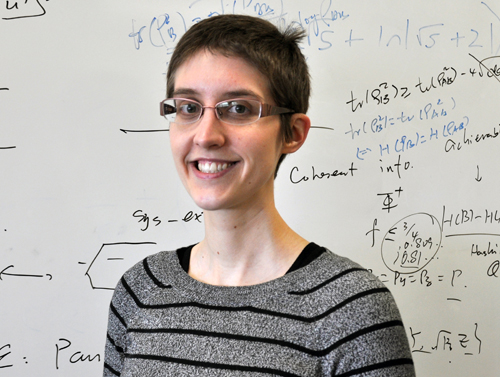
If someone needed your help, how willing would you be to lend a hand? A computer model could help researchers understand what motivates people to be helpful. Erin Wild, a PhD student in mathematics and statistics, is working on an algorithm that can model altruism.
“We’re trying to model different scenarios to see if we can shed some light,” says Wild. She is working with Profs. Monica Cojocaru and Edward Thommes, also in the Department of Mathematics and Statistics, on a model developed by psychology professor Patrick Barclay.
She also completed a master’s degree with Cojocaru in 2013. Wild’s M.Sc. thesis, “Modelling Awareness and Adoption: Aggregate Behaviour versus Agent-Based Interactions with Network,” considered the use of mathematical models to better understand human awareness and the adoption of new thinking; i.e. predicting the influence of advertising.
Mathematical models often assume that everyone acts the same way, says Wild. “The interesting part comes from the fact that we’re all different, and we all have different ways of evaluating things.”
Using an agent-based model in her PhD research, she can assign different attributes to people, such as varying degrees of helpfulness, to see how it affects their behaviour. The model is based on game theory, where each participant has their own strategy to win, which influences how they interact with other players.
In her model of altruism, people help each other with the expectation that they will be helped in return when they need it. The model also assumes that people will get help proportional to what they give.
“But there’s a trade-off,” says Wild. “If you give too much help, then that’s a cost to you, and it subtracts from the benefit that you’re getting. At what point can you get the maximum payoff?”